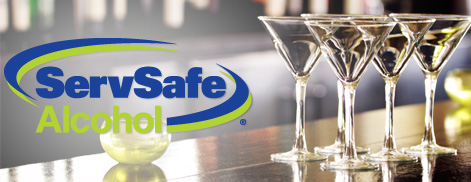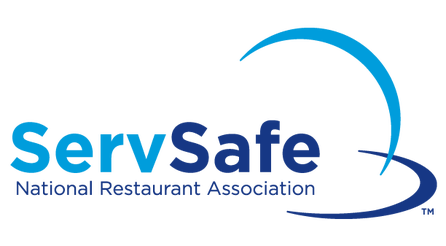How to Get the servsafe food handlers card and Why It’s Important for Restaurant Careers
How to Get the servsafe food handlers card and Why It’s Important for Restaurant Careers
Blog Article
Master Responsible Alcohol Service With Comprehensive Qualification Programs
The mastery of liable alcohol solution is not merely a regulative requirement; it is a basic aspect that boosts the credibility and functional honesty of establishments within the hospitality market. Comprehensive accreditation programs provide very useful insights right into regional laws, efficient treatment techniques, and consumer engagement techniques. By spending in these training campaigns, services can promote a society of responsibility amongst their staff, mitigating risks and improving customer contentment. The course to effective application and its lasting advantages may not be as straightforward as it seems. What difficulties lie ahead for those that seek to boost their service standards?

Importance of Responsible Alcohol Service
Accountable alcohol service is essential to advertising public health and safety in facilities that offer alcohols. It incorporates a variety of methods created to protect against the overconsumption of alcohol, minimize the risk of alcohol-related harm, and guarantee a secure environment for patrons and team alike. By upholding responsible solution requirements, establishments can mitigate prospective events of intoxication, which might result in accidents, physical violence, or other adverse results.
Additionally, liable alcohol solution enhances the overall customer experience. Additionally, facilities that stick to liable service methods typically experience reduced insurance premiums and reduced legal responsibilities.
Additionally, applying responsible alcohol service methods straightens with broader public health campaigns targeted at lowering drug abuse and advertising neighborhood health and wellness. This aggressive technique not only protects specific patrons but also contributes to a healthier culture. Ultimately, liable alcohol service is not just a legal commitment; it stands for an honest dedication to the wellness of consumers and the area at large.
Secret Parts of Accreditation Programs
Qualification programs for liable alcohol solution commonly incorporate numerous crucial elements designed to gear up team with the needed abilities and expertise to offer alcohol securely. First and leading, these programs often consist of detailed training on neighborhood and state alcohol laws, making certain that individuals recognize their lawful responsibilities and the repercussions of falling short to abide.
One more crucial part is the recognition of signs of intoxication - servsafe food handlers card. Team are trained to identify behavior cues indicating when a client may be over-served, allowing them to step in appropriately
In addition, effective interaction strategies are stressed, instructing staff exactly how to engage with customers in a manner that promotes liable drinking. This includes training in problem resolution techniques, permitting team to handle difficult scenarios smoothly and skillfully.
Furthermore, programs often incorporate functional circumstances and role-playing workouts, offering participants with real-life instances to practice their abilities. Recurring education and resources are vital for maintaining expertise and skills over time, as regulations and best methods evolve. With each other, these elements produce an extensive framework that encourages personnel to promote a much safer drinking setting while decreasing responsibility for facilities.
Benefits for Personnel and Establishments
Staff and facilities alike gain substantial gain from taking part in responsible alcohol solution certification programs. For staff, these programs enhance knowledge and skills connected to alcohol service, outfitting them to identify indicators of intoxication and implement effective treatment techniques. This training not only promotes a sense of confidence amongst staff members but likewise promotes a society of safety and security and responsibility in the workplace.
For facilities, buying qualification programs can lead to lowered responsibility and fewer occurrences connected to over-serving. By making sure that personnel are well-trained in responsible service techniques, establishments can mitigate risks connected with alcohol-related events, consequently shielding their online reputation and economic security. Additionally, several jurisdictions offer incentives, such as lower insurance policy premiums, for licensed establishments.
Additionally, applying certified techniques can enhance client satisfaction and loyalty. Patrons are a lot more likely to go back to venues that prioritize their safety and security and wellness. Inevitably, a dedication to accountable alcohol solution not just grows a favorable setting however also enhances the overall operational performance of facilities, making it a clever investment for long-term success in the friendliness industry.
Common Difficulties in Alcohol Solution
Making certain reliable alcohol solution is not without its challenges, even in establishments devoted to responsible methods. One substantial difficulty is the requirement for team to properly evaluate customers' alcohol usage degrees. servsafe food handlers card. This needs an eager understanding of how various factors, such safe serve certification michigan as food intake, tolerance, and private differences, influence intoxication
Furthermore, the stress to maximize sales can contrast with responsible service protocols. Workers may face troubles in refusing service to inebriated people, specifically in social atmospheres where peer stress and expectations are common.
One more difficulty is staying upgraded with neighborhood legislations and regulations regarding alcohol service. Compliance is important, yet regular adjustments in regulation can produce confusion and might result in inadvertent offenses.
Training programs might not always cover the nuances of real-world circumstances, leaving personnel unfit to handle complex circumstances. Inconsistent communication between management and staff members pertaining to assumptions for accountable service can further aggravate these concerns.
To navigate these difficulties efficiently, establishments must foster a setting of support, stressing the relevance of liable solution while giving the essential devices and training for team to be successful.
Steps to Acquire Qualification
To obtain Accountable Alcohol Solution Accreditation, applicants normally start by researching the specific requirements mandated by their regional regulative authorities. These demands may differ dramatically depending upon the area, so it is vital to familiarize oneself with the appropriate regulations and regulations.

After picking a program, candidates should complete the requisite training, which generally covers subjects such as identifying intoxication, recognizing lawful duties, and executing approaches for responsible solution. Participants should proactively engage with the material, as this expertise is important for efficient alcohol solution.

Adhering to training, prospects generally take an assessment to examine their understanding of the material. Effective conclusion of this evaluation leads to accreditation.
Conclusion
In conclusion, mastering liable alcohol service through comprehensive qualification programs is essential for promoting safety and boosting client experiences within the hospitality market. By furnishing team with the essential understanding and abilities, establishments not only reduce risks related to overconsumption and legal obligations but likewise grow a society of duty. This dedication to responsible solution eventually causes enhanced consumer commitment and operational success, strengthening the relevance of recurring training and adherence to alcohol service requirements.
Report this page